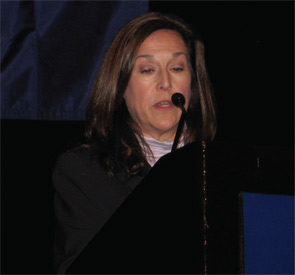The basic ethical tenets often do not hold up in disaster situations because they are at odds with one another, Dr. Pou said. Treatment of patients becomes population based, not individual based—do the greatest good for the greatest number of people.
Explore This Issue
February 2012
There may be a “duty to care,” Dr. Poud said, but how long is a physician expected to stay with a dying patient? Physicians were faced with this agonizing question at Lindy Boggs Hospital, where the helicopter evacuation of critical patients was called off due to gunfire.
Also, what about informed consent? “You may say, ‘Why is she talking about that? This is pretty straightforward — you know, it’s a disaster, you do the best you can,’” Dr. Pou said. “And that’s because my colleagues and I were greatly, greatly criticized by ethicists and the media because we did not have a consent form signed by patients that were not ours…. When you’re in this situation, you’re going to take care of whoever’s in front of you.”
Many patients’ doctors had already evacuated and were not there to care for them. “In our case, most of them evacuated to be with their family members,” Dr. Pou said. “They said, ‘We’re not staying. I figured somebody would take care of my patients. I didn’t know who, but I figured somebody would.’”
Dr. Pou said thinking that a disaster will never strike is a dangerous assumption. “Many people felt that what happened in New Orleans was just a fluke, it would never happen to them,” she said. “But as we know, especially over the last year, it’s proven with the tornadoes and the earthquakes that any one of us could be put in this situation.”
The fear of litigation was the reason some nurses working at Louis Armstrong Airport in New Orleans after Katrina declined to give frail patients morphine even when given a doctor’s prescription, Dr. Pou said. They felt they would be held responsible if the patient died, she said.
“You need to make sure that whoever’s in charge of the evacuation at your hospital is competent because your life and the lives of your patients are going to depend on it,” she said. “Healthcare professionals need to be trained in some type of disaster triage and they need to be trained in doing jobs that they don’t normally do. Because you don’t know where you’re going to be when disaster may strike.”
Leave a Reply